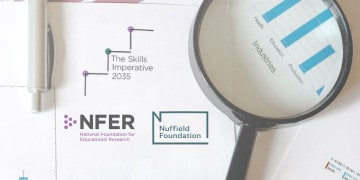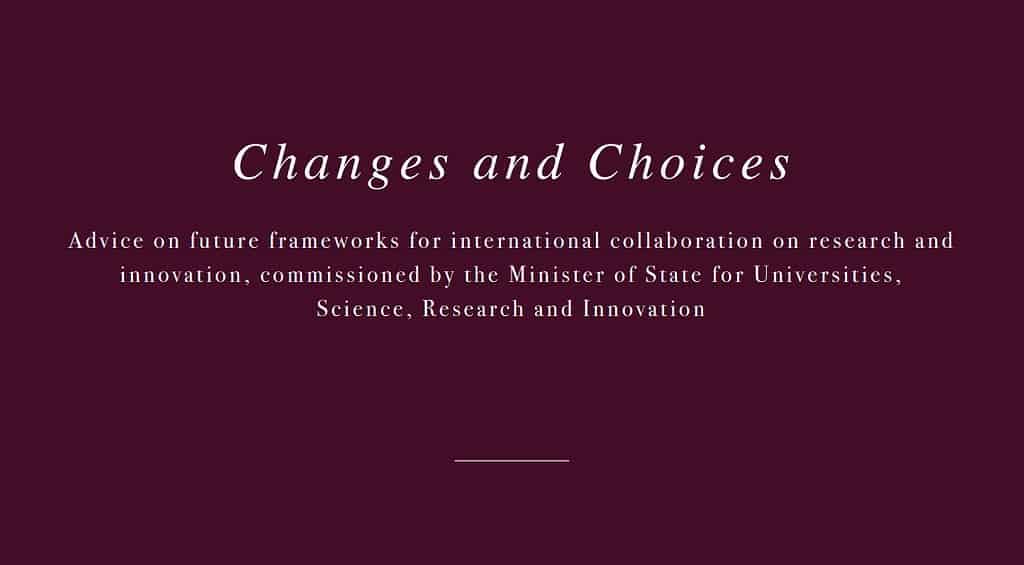Drawing on research and experience, Lenna Cumberbatch explores some of the small things that can be done to move towards equality of opportunity in STEM.
The small things that make the difference
01 Mar 2018
There are very fine margins between excelling, succeeding, passing and failing. Small things can make all the difference in moving between one and the other. Things like having a presentable CV, interview skills, having visited the Science Museum, knowing that the GCSEs you select at age 13 may impact the subjects you are allowed to study at University and not having people around you who know about science careers can be that difference.
These tacit pieces of knowledge have nothing to do with how intelligent you are or how hard you work. However, those with access to these nuggets of knowledge are often those who are around people who have been exposed to this knowledge themselves and are therefore more likely to follow in their footsteps.
For science, this is described as ‘science capital’ in the Aspires report which examines young people’s science and career aspirations.
“Science capital refers to science-related qualifications, understanding, knowledge (about science and ‘how it works’), interest and social contacts (e.g. knowing someone who works in a science-related job).”
In Baroness McGregor-Smith’s review on race in the workplace she also identifies this sort of tacit knowledge,
“In many organisations, the well-established processes in place can act as a barrier to ethnic minorities…”.
Whether it be in school, university or employment, access (or lack thereof) to this tacit knowledge is having a material impact.
If these ‘knowledge bites’ are the markers upon which we make decisions as to who is encouraged to progress along a STEM (science, technology, engineering and maths) pathway then access to this knowledge needs to be universal and not dependent on who you know or attending the right school. Levelling this sort of careers advice playing field is a long-term endeavour highlighted in the Gatsby Compass tool where schools can measure their careers guidance provision. One of the eight benchmarks is addressing the needs of each pupil –
“pupils have different career guidance needs at different stages. Opportunities for advice and support need to be tailored to the needs of each pupil. A school’s careers programme should embed equality and diversity considerations throughout.”
Only 0.5% of schools have achieved the eight benchmarks for all students. Careers advisors often do not have the resources to become experts in all fields and advocate for more specialised literature on science career paths to support their work.
There are also ways that this provision can be supplemented. In fact, various interventions are already utilised to provide access to (in particular) underrepresented groups. Interventions include access courses, after school programmes, graduate schemes, internships and mentoring. These interventions are designed to provide something sponsors (from educational establishments to employers and otherwise) feel that candidates need but are not getting.
Mentoring is often the go to intervention whether it be in any of the three streams of mentoring; youth, academic or employment (Eby, Lillian T. et al, 2008 – Does mentoring matter? A multidisciplinary meta-analysis comparing mentored and non-mentored individuals). Some say it dates back as far as ancient Greece (Gibson, 2004 – Mentoring in business and industry: the need for a phenomenological perspective) but certainly, mentors or role models have been utilised in medical settings to pass down tacit knowledge from physician to physician for decades (Paice, 2002 – How important are role models in making good doctors?). Mentoring is well-established as an intervention for women (Meschetti, 2017 – Does Mentoring Make a Difference for Women Academics? Evidence From the Literature and a Guide for Future Research) and minority ethnic groups (Lee, 1999 – Striving Toward Effective Retention: The Effect of Race on Mentoring African American Students) to name but a few examples.
In fact, the 2016 ASSET survey (Athena Survey of Science, Engineering and Technology – Experiences of gender equality in STEMM academia and their intersections with ethnicity, sexual orientation, disability and age) has mentoring as its first recommendation.
One of the programmes where I’ve seen this work first-hand is Destination STEMM a mentoring programme for Black A-level students run by the Windsor Fellowship in partnership with the Royal Society. The programme pairs Royal Society Research Fellows with students who are interested in pursuing a career on the STEMM pathway. It is not simply about bringing the students with the best grades to STEMM subjects. In addition to increasing Science Capital the aims of the programme are to expose this group of students to a broader range of science subject areas (other than medicine and engineering where there is better representation) and to help them with the tacit knowledge discussed earlier.
It has already demonstrated impact in this area with several students changing their GCSEs, so they were taking triple science, getting CV and UCAS application writing advice and all of them being exposed to scientists at work. However, this is a tiny programme with 20 students in each cohort benefiting from the expertise of the Windsor Fellowship, a network of other students like them and high achieving Royal Society Research Fellows. With only 0.6% of professors identified as black, Destination STEMM seeks to create a model that works not simply for increasing but for retaining black students in STEMM by broadening their access to a wider variety of STEMM subjects and the skills they need to stay.
The programme only serves to demonstrate the importance of distribution of this information to improving the diversity in science and the simple things we can do to address the massive skills gaps we have, but to also provide equality of opportunity to all.
Lenna Cumberbatch is Equality, Diversity & Inclusion Manager at London School of Hygiene and Tropical Medicine and is undertaking research on the long term impact of diversity and inclusion interventions. She is also a member of the Wellcome Diversity & Inclusion Strategic Advisory Group.
Related articles

The Physiological Society’s policy team on the health challenges facing older workers and the urgent need to develop a strategy to ensure older people are happy and healthy at work.

Jo Reynolds, Director of Science and Communities at the Royal Society of Chemistry, on the RSC’s new summary report looking to unlock the potential of deep tech SMEs.

Lisa Morrison Coulthard, Research Director at the National Foundation for Education Research, on the Nuffield Foundation funded five year research programme providing insights into the essential employment skills needed for the future workforce

Sir Adrian Smith, Institute Director and Chief Executive of The Alan Turing Institute, and Graeme Reid, Professor of Science and Research Policy at UCL, set out the findings from their new independent report on international partnership opportunities for UK research and innovation